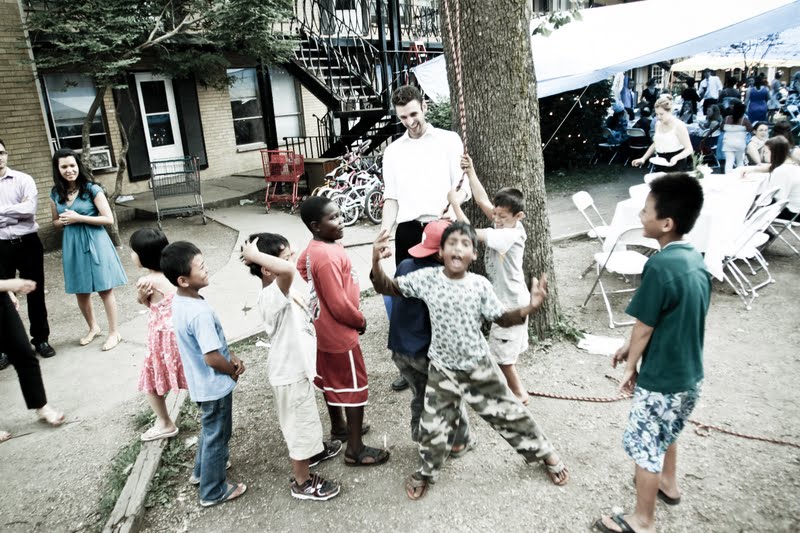I was recently sharing a wonderful Parkside ministry moment with a group of leaders at Resurrection. A girl from a Buddhist family who has been involved in my Bible study for several years wants to get baptized. One of the leaders commented to me later, “You must see a lot of moments like that at Parkside!” I smiled and nodded. It’s true. We have seen God at work in amazing ways through relationships with our neighbors. We have seen many kids get baptized here. We have helped three neighborhood kids go to 4-year colleges (and seen one graduate!). We have helped newly arrived refugees navigate public aid, ComEd, Medicaid, the school system, the DMV, and a grocery store. We have helped a homeless family find a home at Parkside. We have taught neighbors how to drive and helped them buy their first cars. We have taught them English and the Bible.
After many years of living in this community, our neighbors know us, trust us, and seek us out for help or advice. But what’s more, we know our neighbors, trust them, and seek them out for help and advice as well. When we moved apartments within the complex, we asked for help from all our friends, but the first people to come were two neighborhood moms, Burmese and Somali, an elderly Karen man, and an international herd of 4-year-old boys. I realized that day how much I depend on my neighbors! We have been welcomed into their homes, enjoyed meals with them, and formed incredible life-giving friendships.
But for every mountaintop moment described above, I can also tell you heart-wrenching stories of charity gone wrong, of relationships ruined through cultural miscommunication or neglect. Relational ministry is really hard. Building relationships takes time; it’s organic, and it’s messy. We get overwhelmed by how much help they need, overwhelmed by the amount of time, energy and resources it would take to solve their problem. We get frustrated when our hard work and charitable efforts are dismissed or unwelcome. We have helped people find jobs only to have them lose them. We helped a homeless teen find a home only for him to run away again. We have helped kids get the educational support they need at school only for them to move away. Relationships have soured when we have told neighbors we can’t or won’t help them. Our “toxic charity” has, at times, caused unhealthy dependence or caused our neighbors to feel ashamed instead of empowered.
Getting involved with Compassion Ministry at Church of the Resurrection can seem overwhelming too. I have had prospective volunteers take one look at the chaos involved in our Kid’s Club and say it isn’t for them. We all have limited time and energy and the needs are seemingly unending. So, how can an individual, a small group, or a family get involved in Compassion Ministry without burning out? How can we best empower those we serve and not disable them?
While the answers to those questions will vary from person to person, Pastor Matt Woodley and I have developed a tool to help you find your onramp into Compassion Ministry. For example, on the chart you will see on our “Compassion Connect” page, Level 1 involvements are one-time service opportunities that take an hour or less. Level 2 commitments require a slightly higher investment of your time and energy. Level 3 includes opportunities that call for weekly commitments or longer one-time commitments. Level 4 may involve several days, special training, or weekly or monthly commitments. Level 5 requires special training, a semester or year-long commitment, several hours a week, and a high level of relational involvement. Each of the bullet points are linked to a sign-up or an e-mail for the contact person. We will keep this chart updated regularly, so you can always see different ways to get involved as needs arise.
At Church of the Resurrection, we value building relationships as we walk alongside the vulnerable and marginalized. Of course, relationships take time to build, they often happen organically, and they cannot be scheduled into a one hour time slot once a week. So start where you feel comfortable, but we do ask you one thing: be open to expanding your commitment as your relationship with the people you serve develops. Our prayer is that out of mutual respect and brokenness, life-giving friendships will grow with the people you walk beside.

